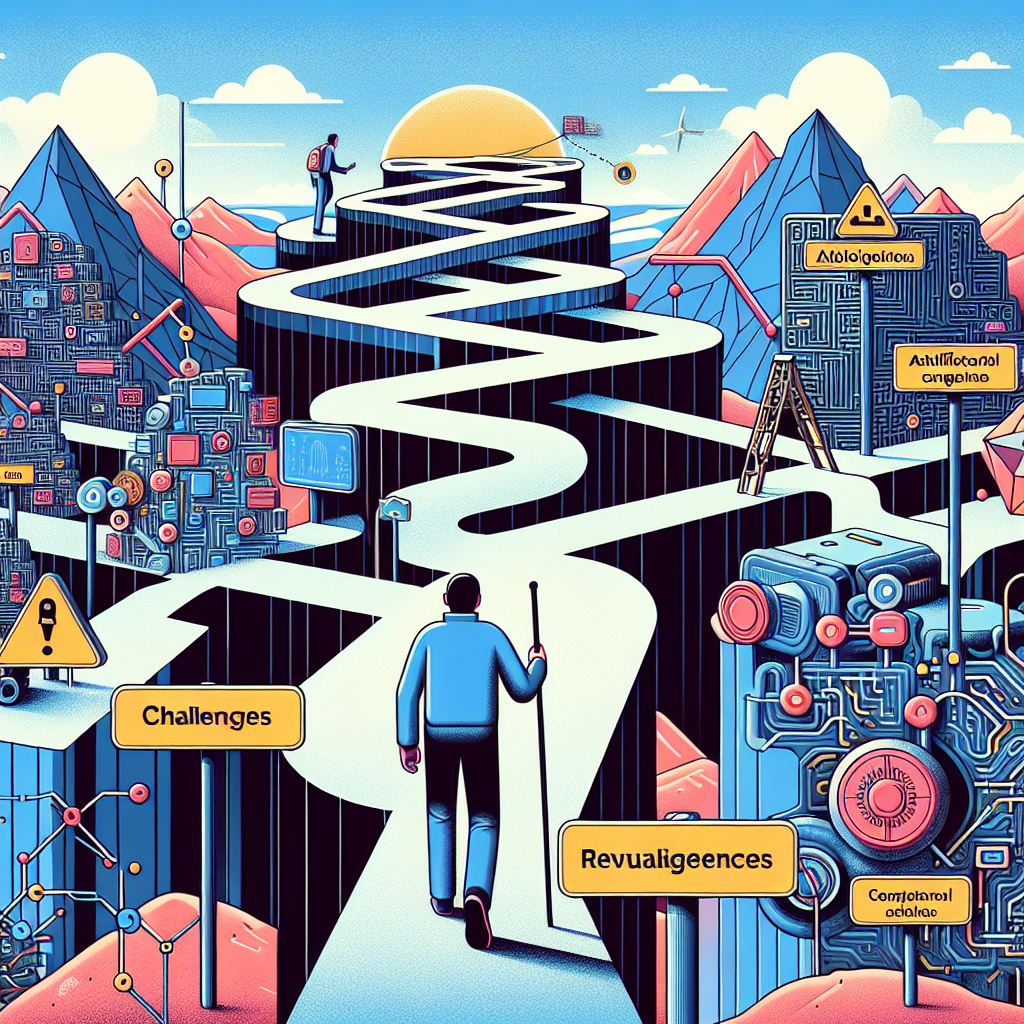Navigating the Challenges of Regulating AGI Development
Artificial General Intelligence (AGI) is the next frontier in the field of artificial intelligence (AI). AGI refers to a form of AI that possesses human-like intelligence and can perform a wide range of cognitive tasks at a level comparable to or even surpassing that of a human. While AGI has the potential to revolutionize industries and improve the quality of life for people around the world, it also poses significant risks and challenges that must be carefully navigated through effective regulation and oversight.
The development of AGI raises a number of ethical, legal, and societal concerns. These concerns include issues related to privacy, security, accountability, and the potential impact of AGI on the job market and economy. In order to address these challenges, policymakers, researchers, and industry leaders must work together to develop a comprehensive regulatory framework that ensures the safe and responsible development and deployment of AGI technology.
One of the main challenges in regulating AGI development is the rapid pace of technological advancement in the field. As AI technologies continue to evolve and improve, it can be difficult for regulators to keep up with the latest developments and anticipate the potential risks and implications of AGI. This makes it crucial for regulators to stay informed about the latest trends and breakthroughs in AI research and work closely with experts in the field to develop effective regulations and guidelines.
Another challenge in regulating AGI development is the lack of consensus among stakeholders about the best approach to overseeing the development of AGI technology. Some experts argue for strict regulations and oversight to prevent the misuse of AGI, while others advocate for a more permissive approach that allows for innovation and experimentation. Finding a balance between promoting innovation and ensuring safety and accountability is a key challenge that regulators must address in the regulation of AGI development.
In addition to the technical and ethical challenges of regulating AGI development, there are also legal and regulatory challenges that must be navigated. For example, there are currently no international regulations governing the development and deployment of AGI technology, which can lead to inconsistencies and gaps in oversight. This lack of a unified regulatory framework makes it difficult for regulators to address global challenges related to AGI development, such as ensuring the ethical use of AI and preventing the proliferation of autonomous weapons systems.
To address these challenges, policymakers and stakeholders must work together to develop a comprehensive regulatory framework that addresses the ethical, legal, and societal implications of AGI development. This framework should include clear guidelines for the responsible development and deployment of AGI technology, as well as mechanisms for ensuring accountability and transparency in the use of AI systems. By working together to develop a common set of standards and regulations, regulators can help ensure that AGI technology is developed and used in a safe and ethical manner.
Frequently Asked Questions (FAQs)
Q: What is AGI and why is it important to regulate its development?
A: AGI refers to a form of artificial intelligence that possesses human-like intelligence and can perform a wide range of cognitive tasks at a level comparable to or even surpassing that of a human. It is important to regulate the development of AGI to ensure that the technology is used in a safe and responsible manner, and to address the ethical, legal, and societal challenges that arise from its deployment.
Q: What are some of the key ethical concerns related to AGI development?
A: Some of the key ethical concerns related to AGI development include issues related to privacy, security, accountability, and the potential impact of AGI on the job market and economy. For example, there are concerns about the potential misuse of AGI for surveillance or other nefarious purposes, as well as the impact of AI on employment and economic inequality.
Q: How can regulators address the challenges of regulating AGI development?
A: Regulators can address the challenges of regulating AGI development by staying informed about the latest trends and breakthroughs in AI research, working closely with experts in the field to develop effective regulations and guidelines, and collaborating with stakeholders to develop a comprehensive regulatory framework that addresses the ethical, legal, and societal implications of AGI development.
Q: What are some of the key legal challenges related to regulating AGI development?
A: Some of the key legal challenges related to regulating AGI development include the lack of international regulations governing the development and deployment of AGI technology, which can lead to inconsistencies and gaps in oversight. Regulators must work together to develop a common set of standards and regulations to address global challenges related to AGI development.
Q: How can stakeholders work together to promote the safe and responsible development of AGI technology?
A: Stakeholders can work together to promote the safe and responsible development of AGI technology by collaborating on the development of a comprehensive regulatory framework that addresses the ethical, legal, and societal implications of AGI development. This framework should include clear guidelines for the responsible development and deployment of AGI technology, as well as mechanisms for ensuring accountability and transparency in the use of AI systems.

